Crew of Nuclear Plant Captured by Putin Spill Their Secrets
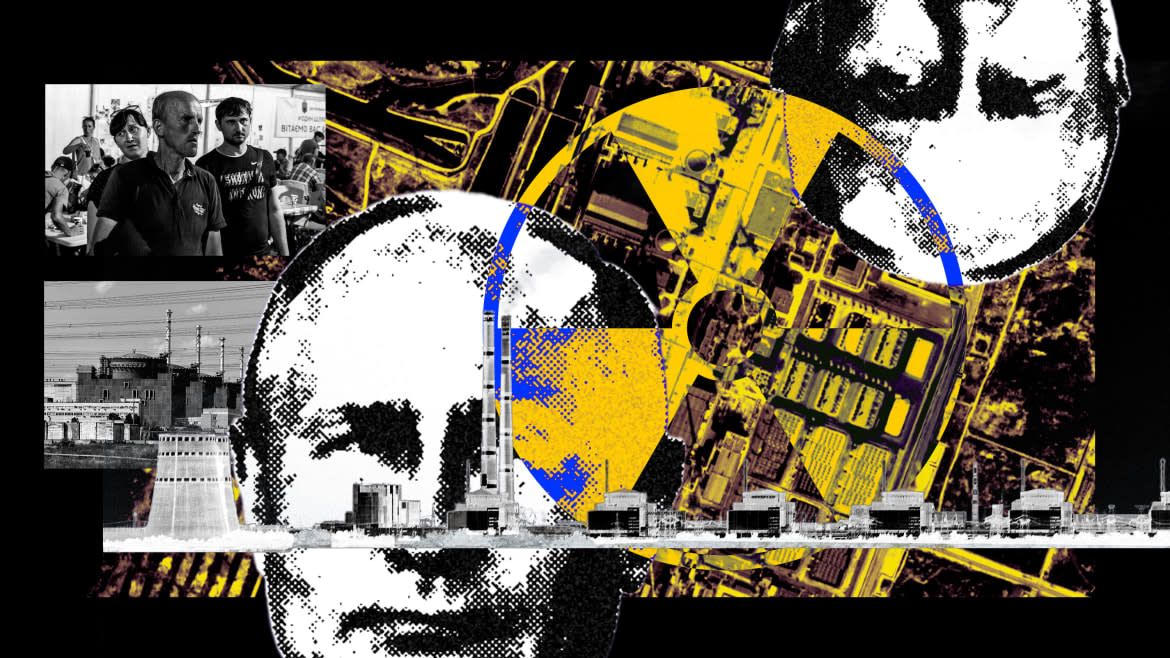
ZAPORIZHZHYA, Ukraine—Employees at the Russian-occupied Zaporizhzhya power plant in Ukraine, one of the biggest nuclear facilities in the world, are facing an impossible decision. Do they hold on to their critical jobs and work under daily bombardment—or do they pack up their lives and flee to safety, despite the risk of an imminent nuclear catastrophe?
Escalating attacks on the Ukrainian city of Enerhodar, where the Zaporizhzhya plant is located, have sparked global panic—and for good reason. Ukraine has accused Russia of shelling the city from the plant grounds. Ukrainian soldiers say they shoot at Russian positions in the town, but not the direction of the plant. In an alarming warning this month, the United Nations nuclear watchdog announced that the situation at the plant has reached a “grave hour.”
Meanwhile, the workers needed to keep the plant safe and operational are left caught in the crossfires of a Catch 22 for the ages.
A power plant specialist in his forties, who chose to remain anonymous due to the sensitivity of his position at the facility, told The Daily Beast he feels duty-bound to remain in the city despite the danger, fearing a worse fate for his country and the world should Ukrainians abandon the city.
“I’m staying because I don’t want another Chernobyl,” he said from a humanitarian center in Enerhodar, referring to the 1986 nuclear disaster in Ukraine’s north, which was part of the Soviet Union at the time. “The difference is that Chernobyl was six times smaller than the power plant we now have. Should something happen to this one, it will be a disaster for the whole world. Work is work and I feel responsible. Ukrainians must do their job.”
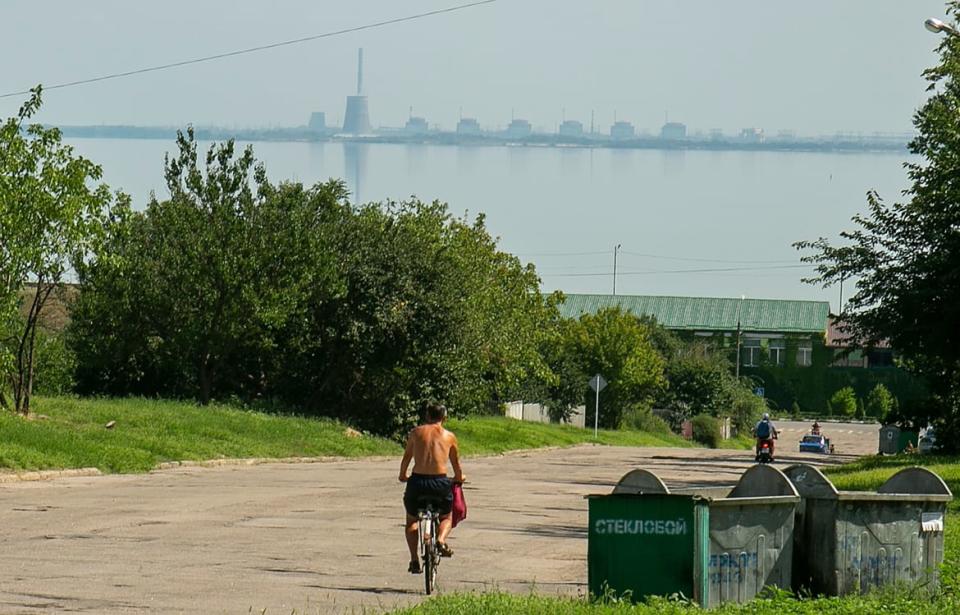
Zaporizhzhya nuclear power plant as seen across the river from the city of Nikopol. The two cities have been receiving regular shelling recently from Russian forces who control the power plant city of Enerhodar.
That’s not to say he’s not afraid for himself and his family. “The place is becoming unsafe,” he said, adding that both Russian intelligence and Ukrainian intelligence forbid the plant’s workers from speaking openly. “We are sending our families to safer places, but the men must stay behind.”
But other Ukrainian workers are choosing to leave. Thirty-year-old Serhii, an engineer and electricity specialist at the plant, recently quit his job at the plant after eight years, choosing to take his wife and baby daughter to Kyiv. “The shelling has become much worse, and it is no longer safe to stay for me and my family,” Serhii told The Daily Beast.
“Some workers have worked in the plant for generations, like their fathers and grandfathers. They can’t imagine their lives without it. But I will not return unless the place is free from occupation.”
Residents visiting the humanitarian center said they believed the escalated bombardment was triggered a month ago—after Ukrainian forces used a drone to target Russian military locations in areas surrounding the plant, which caused some casualties on the Russian side.
Some residents have claimed that Russian forces at checkpoints of Enerhodar are trying to convince residents to stay, referring to areas taken by Russian forces as “liberated territories” previously under “Nazi control.”
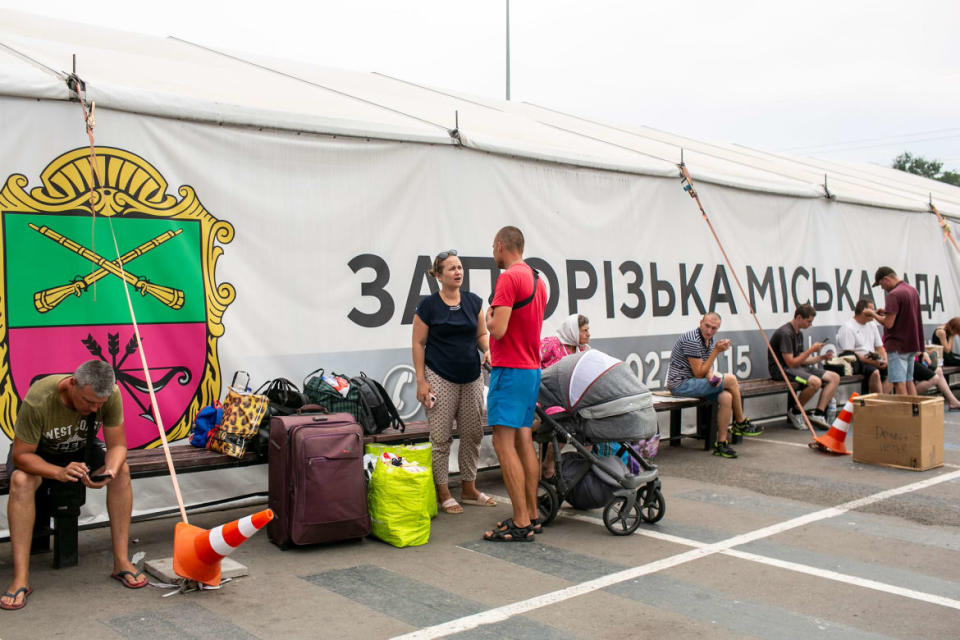
Serhii, 30, (red shirt) an electrical engineer who used to work at the Zaporizhzhya nuclear plant, waiting with his wife and baby at a humanitarian center before he takes a bus with his family to Kyiv. He said he decided to leave his work for his family’s safety.
Any workers choosing to leave, including Serhii, must undergo a registration process and investigation by Russian forces into the reasons given—a process which takes up to five days of queuing at a Russian checkpoint.
The Zaporizhzhya power plant was built during the former regime of the Soviet Union. It was attacked and taken over by Russian military forces within days of the start of the war around six months ago, leaving Ukrainian staff to continue to operate the plant under Russian military guards ever since.
The town was mainly built for the power station, so the majority of the residents have connections to the plant. Most live in a complex of buildings specifically built for nuclear plant workers and their families.
A Ukrainian mother who was on her way out of the city with her daughter and granddaughter told The Daily Beast she was heading to Kyiv after almost 30 years in Enerhodar. Her husband and son-in-law, who work at the plant, are choosing to stay.
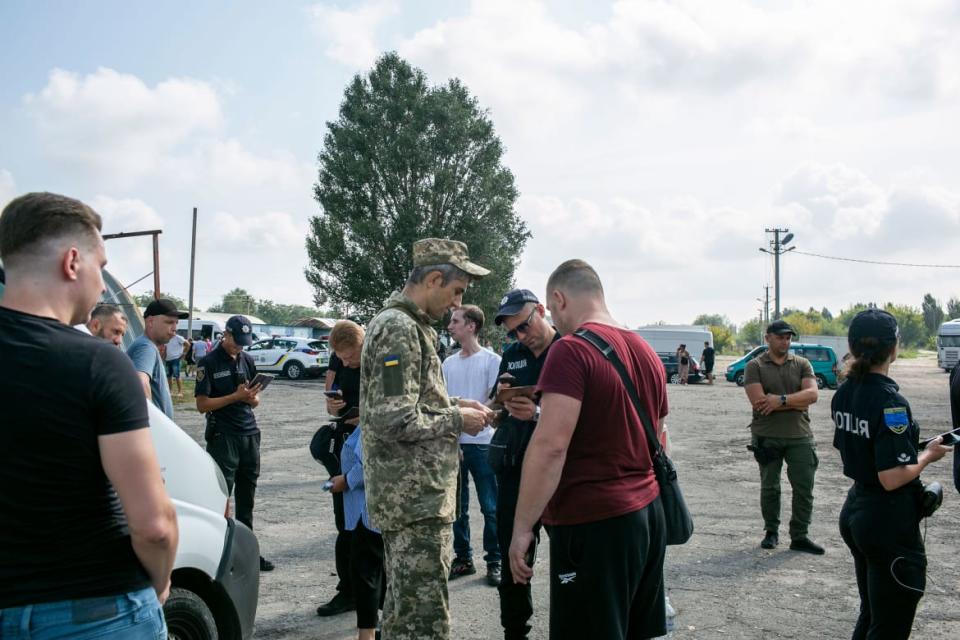
Ukrainian Security personnel check papers from Ukrainians as they register to enter Russian-occupied territories.
“It was a tough decision for us to leave after such a long time,” said the woman who worked as a teacher and requested anonymity. “I was always confident that the city would be protected because it has the nuclear plant… [but then] I saw the Russians from my window while they were shelling into the city from residential buildings. When artillery shells and bombardment became frequent, we became very scared,” she added.
At Vasylivka checkpoint, the last checkpoint controlled by Russian forces some 60 kilometers from Zaporizhzhya city, “the Russians were interrogating me about everything. They searched my laptop and our mobiles,” said the teacher.
One electric engineer, who wanted to go by the alias “Alexander,” still hopes that the latest bombardment of the strategic nuclear city is nothing more than a fear mongering ploy by Russia to gain the upper hand in the conflict. “There are very few strategic benefits of bombarding this place other than spreading fear,” he told The Daily Beast.
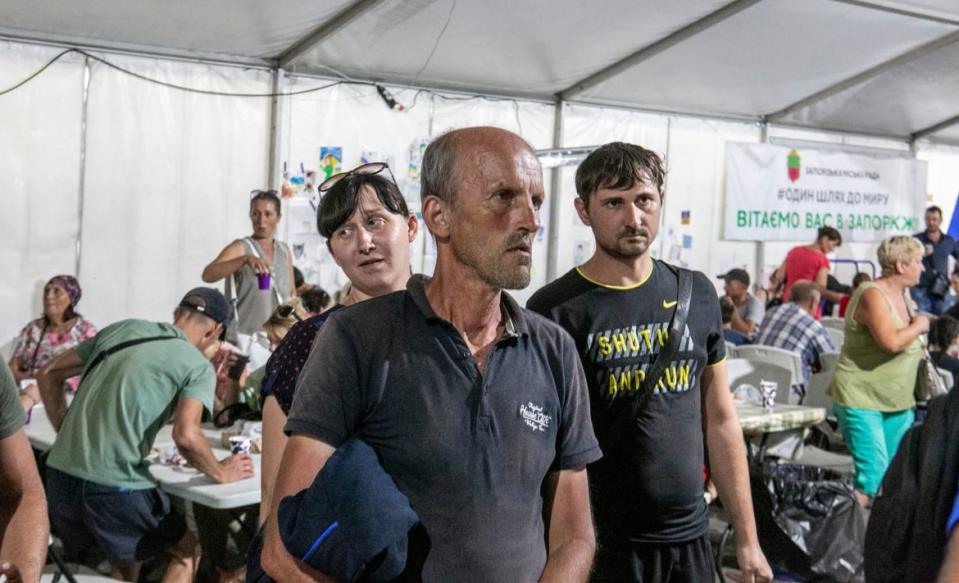
Ukrainians from different parts of the country who fled the southern parts of Ukraine at the epicenter of the city of Zaporizhzhya.
The 37-year-old, who has been working for the plant for 13 years, said he was on duty when the Russians came March 3 and seized control of the plant. As the shelling intensified this month, he decided to take an unpaid “vacation” from his position at the plant, but plans to return.
“It is risky now to go back. I’ve already sent my family away a while ago,” he told The Daily Beast. “But at least this is my home.”
Get the Daily Beast's biggest scoops and scandals delivered right to your inbox. Sign up now.
Stay informed and gain unlimited access to the Daily Beast's unmatched reporting. Subscribe now.

